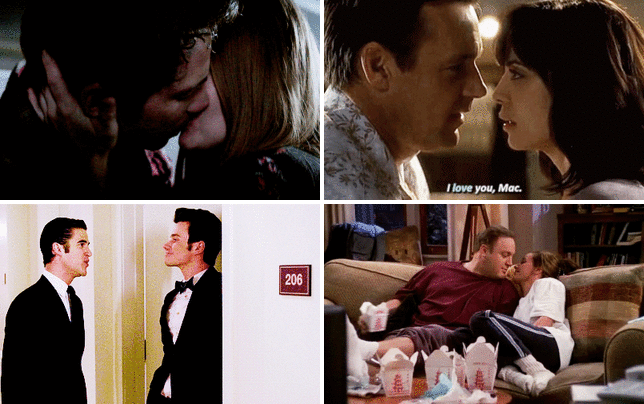Ramy Season 2 Boasts a Uniquely Introspective Character Despite Bungled Finale
 Orrin Konheim
at
.
Orrin Konheim
at
.
Airing on Hulu, Ramy stars Ramy Youssef as a Muslim New Jersey slacker who's aimlessness leads him to try to seek a better relationship with God.
Considering many shows aim to show men attempting to seek sex or a relationship, it's refreshing to have a male protagonist bent on curbing those impulses.
What makes Ramy resonate even more is how he resonates as a modern everyman of sorts. Sporting a backwards baseball cap and a beard that is more hipster than holy, Ramy never seems particularly removed from our culture.
The young Muslim is also plagued by the uncertainty that marks most millennials today.
The specificity of Ramy's situation is a Muslim, however, helps take the show to new territory in a tired genre (comedians playing themselves). The dialogue unapologetically uses native words without explaining them for an audience.
Like I had sex with a married woman during Ramadan. It was after Maghrib, though. Just so you know, it was during eating hours. Not that that makes it ok. I just want you to know if it's- if that makes it any better. Does it?
Ramy
What sticks out about this character of Ramy is his desire to please and receive external validation. Because his intent is always to do right by others, it's difficult to label him as bad. The worst you could say is that he doesn't have an internal compass.
The series opener begins with Ramy in a funk that's just plain depressing. Ramy is shown buying junk food at the gas station and then proceeding to watch pornography in multiple settings.
He's returned from a trip to Egypt filled with guilt over committing incest with his cousin, he knows he's hit rock bottom, and his solution is to just turn his brain off and indulge his worst impulses.
Part of Ramy's problem is that he hangs out with a trio of friends who tend to externalize his worst instincts.
One is disabled and one is married and they live vicariously through Ramy to a degree that ranges from exploitation and co-dependency. But even those guys see he's too deep into his wallowing to and that's a bad sign.
It's at this nadir that he meets Sheikh Malik (Mahershala Ali) and the two embark on a spiritual contract (a "bayah").
Ali recently became the first Muslim actor to win an Academy Award (Moonlight, Green Book) and he lends a lot of authenticity to the part as a soft-spoken man with a big presence. His dialogue oozes wisdom.
More importantly, Malik makes a great foil to Ramy.
Ramy: I want to take the bay'ah. I want to kill my ego
Sheikh Malik: How do I know I'm not just one of your desires
Ramy: I don't want to have sex with you
Sheikh Malik: I didn't think you did but that would be pretty easy as your teacher to hand me your pain, ask me to take it away, be the solution to your problems.
Ramy eventually veers towards episodes that highlight side characters which allows the series to have multiple perspectives on the Muslim-American immigrant experience.
It's in these tangents, that the show shines with its greatest levels of experimentation. Think Louie or Master of None but less blatantly pandering.
In exploring cultural alienation, the show doesn't present us with easy answers.
The episode "They" pits our sympathy for an immigrant who's out of date on cultural norms (why wouldn't she be?) against a transgender person she's subtly harrassing for what might be considered progressive intentions.
And then there's the question of Maysa's (Hiam Abbass) insensitivity is entirely a cultural issue or part of her own selfishness that gets explored through a bruising family confrontation at the episode's close. Viola! We have character development!
Contrasting this is Ramy at the center of the show itself. For all the awkward pauses and off-center situations that make this show a dramedy, the show is truly about growth as Ramy's spiritual side seems to win out over his temptations.
Or rather, it's more accurate to say the character of Ramy's spiritual side ALMOST wins out over his temptations.
In the season finale, the character of Ramy is well on his way to settling down into a marriage with the Iman's daughter (MaameYaa Boafo) when his cousin (the one with the incest, it's icky, I know) shows up out of the blue for the wedding.
It's high drama, no doubt, but it's not pretty when it goes downhill. It's also disappointing as television.
Ramy doesn't just make a moral slip, but he completely loses his marbles as if he's tryiing to set a world record for stupid decisions in a 24-hour span. Sadly his dear shiekh is there to verify the record.
First, Ramy succumbs to his cousin's charms the night before the wedding. Next, Ramy decides to go through with the wedding.
Not an awful move, considering he's not related to her, but after deflowering her on their wedding night he immediately asks her if he can take another wife.
After much probing, Ramy's mistakes are exposed. He's left with neither the dignity of having been able to confess before being caught nor the slyness to conceal a lie. And with that, Ramy loses his wife, his shiekh and whatever progress he's made in the first nine episodes.
Cousin Amani (Rosaline Elbay) no longer wants him which prompts the question of why the heck she would travel halfway across the world to explore potentially marriage-wrecking unresolved feelings if she didn't want the consequences?
When she responds to his declaration of love by saying she feels like crap, is it his fault?
I'm not gonna be with someone who makes me do stuff that's insane and impulsive and destructive, man. Like I do things with you that make me hate myself.
Amani
On to Ramy? Mainly, how could he have been so stupid?
I personally have never had an affair on a fiancé; and am not clear how someone would make that decision, but I would hope that a convincing TV would show me how? Not the case here.
Perhaps in the era of #metoo, the series wants to posit Ramy as a study in toxic masculinity. The problem is that despite the Sheikh's allegations that he was "dangerous", Ramy was never particularly toxic before this episode.
BoJack Horseman and Orange is the New Black have attempted to delve into the same thematic currents and failed (in my opinion) because the characters were clearly in stages of self-improvement meiriting audience sympathy.
Instead, the cynical side in me worries that the series set Ramy backwards so they could properly have room for the character to maneuver in season three.
It's an unnecessary sacrifice that mars an otherwise amazing season but it's hard to deny that few shows on TV have been this effective.
Orrin Konheim is a staff writer for TV Fanatic. Follow him on Twitter and his personal blog at Medium.












